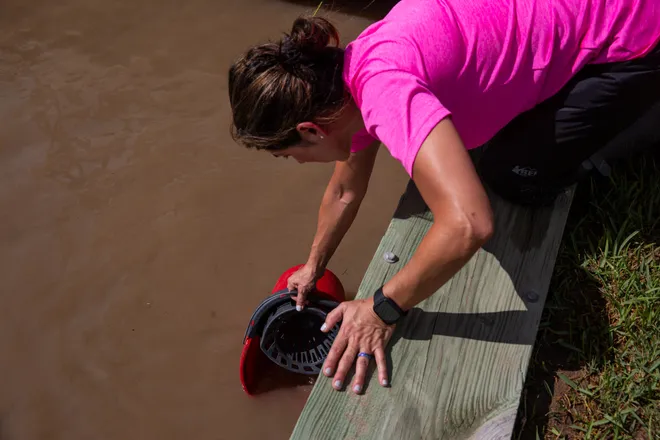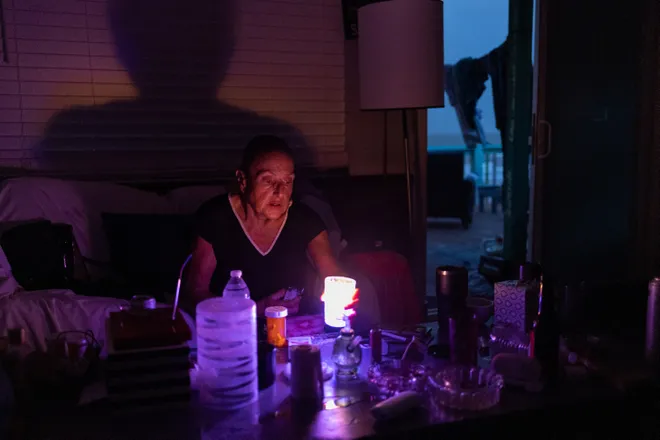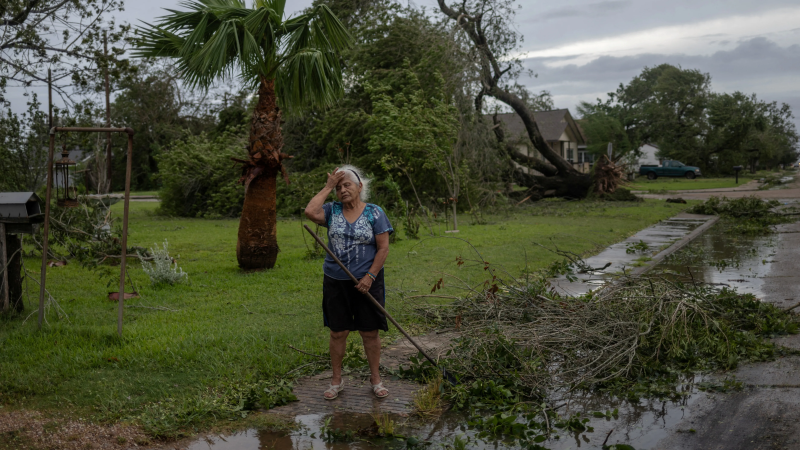How to help victims of Hurricane Beryl − and avoid getting scammed

More than a half dozen people are dead, and over a million homes and businesses are without power in scorching heat after Hurricane Beryl made landfall in Texas on Monday and left a trail of destruction behind.
In wake of the first U.S. hurricane of what could be a busy season, relief groups have sprung into action to help those who were affected in Texas.
Red Cross shelters, which have popped up all over the eastern part of Texas, hope to give people refuge from the exhausting heat.
"It is absolutely brutal down here and the temperatures are extremely high and there's very little cloud cover," Stephanie Fox, the national spokesperson for the American Red Cross is in Fort Bend County, Texas, told USA TODAY.
"We want folks to understand that, with there being more than 2 million or so without power in this area that they can come to these shelters even if they're not going to stay overnight, even if they haven't sustained damage to their homes."
Beryl live updates:Heat drives Texans to sleep in cars amid outages while the North floods
How can I help Texans and others affected by the storm?
Sending cash to charities and non-profits that are helping communities recover from the storm is one of the best things you can do to help, Elian Giaccarini, an emergency management coordinator for Central America and the Caribbean for Adventist Development and Relief Agency, ADRA, an international faith-based humanitarian agency, told USA TODAY.
Monetary donations allow organizations like the Red Cross or ADRA more flexibility to support different communities' needs after a natural disaster.
In-kind donations, like canned foods or water bottles, take time to reach the affected areas, and by then, they may no longer be needed.
"By the time those things get there, the situation and the needs are already very different," said Giaccarini. "So donating cash allows us to roughly change our budgets and buy the things that we need as we respond in those countries."
ADRA also gives cash donations to civilians affected by disasters if grocery stores or markets can still open. This, in turn, will boost the economy.

The Red Cross already has sufficient in-kind donations, like clothing, said Fox.
But, the best ways to help the Red Cross are by doing the following, states Fox:
- Volunteer locally
- Donate blood
- Make financial donations
"Making a financial donation to disaster relief allows us to help prepare for, respond to and support communities recover from disasters like Hurricane Beryl and others," said Fox.
People who want to donate clothing can check in with local organizations, like churches, to see if they will be fundraising or caravaning donations to affected areas. The Red Cross also has community partners that accept donations.
"We have community partners that we work with that are able to help manage any kind of donations, make sure stuff is clean," said Fox.
They then sort out the donations and organize them, which allows the Red Cross to "focus on that sheltering, that feeding, and that comforting care."
Avoid scams
Doing research on different non-governmental organizations (NGOs), nonprofits that work independently from the government, is the number one way to avoid getting scammed, said both Fox and Iris Argueta, ADRA's Director of Communications and Public Relations.
"The most important thing is to research the NGO," said Argueta.
Fox and Argueta recommend using the following websites to research charities before donating:
- Charity Navigator
- Charity Watch Group
- Better Business Bureau
- GuideStar
It's important to check if charities are registered and accredited and by relevant authorities.
Nonprofits won't be aggressive when seeking donations, either, said Argueta. So beware of unsolicited donation requests. Niether the Red Cross nor ADRA will make cold calls seeking donations.
"There is no time because we're actually in the field responding," said Argueta.
Seeking help in Texas and escaping the heat
Those who are looking for shelter in Texas can look for Red Cross shelters in their area.
"Right now, we are focusing on providing safe shelter," said Fox. "And that's both safe shelter for those who are displaced and also a safe shelter for those out of the heat."
"A lot of folks are working on their homes, they're outside, they're clearing debris, and that is going to put them at potential risk for heat illnesses," said Fox.
Fox emphasised that everyone is welcomed to a shelter, even if a person is just trying to get away from the sun and avoid heat illness.

Exposure to high heat and humidity can lead to heat illnesses, according to the Center for Disease Control and Prevention. Heat stroke, the "most serious heat-related illness," occurs when the body is unable to regulate or lower it's temperature and can result in confusion, loss of consciousness, seizures and more.
"The greatest concern right now is the power outages and extreme heat that is impacting Texans," said President Joe Biden in a statement after he approved a major disaster declaration for Texas.
Finding shelters in Texas
Visit the Red Cross's website to locate a shelter near you.
Disclaimer: The copyright of this article belongs to the original author. Reposting this article is solely for the purpose of information dissemination and does not constitute any investment advice. If there is any infringement, please contact us immediately. We will make corrections or deletions as necessary. Thank you.






